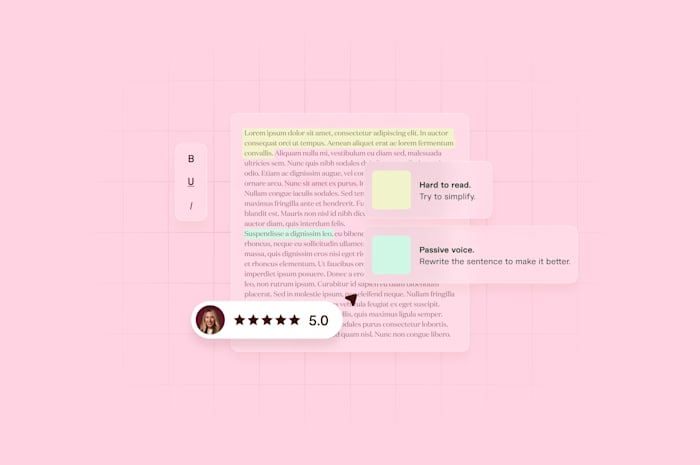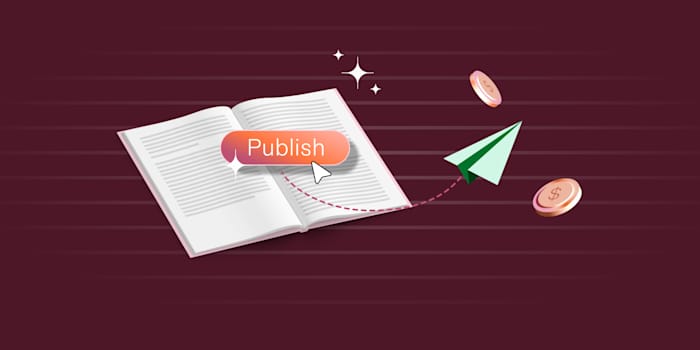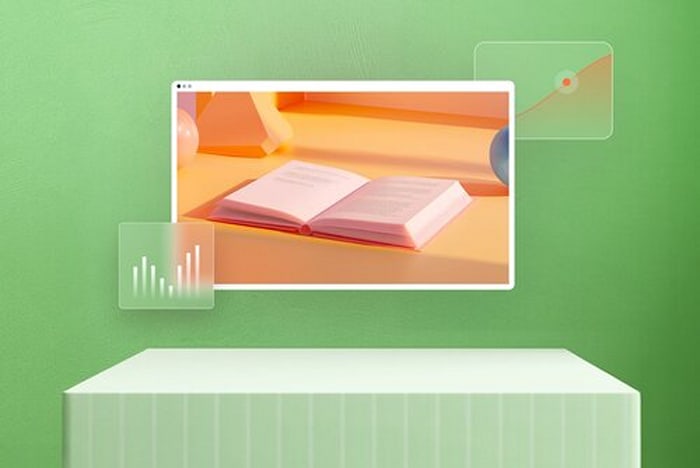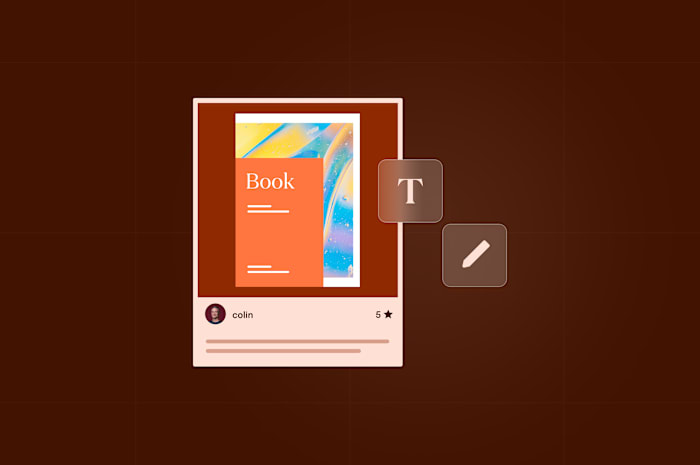Beta Readers 101: Who They Are and Why Your Story Needs Them
Learn why beta readers are critical for polishing your manuscript before publication.
 January 29, 2025
January 29, 2025 9 minute reading
9 minute reading
Congratulations—the manuscript that consumed your waking hours is finally finished. Now comes the hard part: sharing your work with others for detailed feedback. This is where beta reading comes into play.
Beta readers act as stand-ins for "real" readers who’ll eventually buy your work. Writers intentionally seek out beta readers to get thoughtful critiques. While market research helps you write books that resonate with your audience, fresh perspectives can elevate your storytelling. By using beta reading services, you can effectively refine your manuscript before sharing it with the world.
What is a beta reader?
A beta reader is an early audience for your manuscript, providing feedback before it goes to a proofreader or an editor. The concept comes from the tech industry, where beta testers help refine software. In this case, beta readers help fine-tune your story. Their constructive input ensures your book or ebook is polished and ready for its audience.
Unlike professional editors, beta readers are everyday individuals who love reading and have a knack for constructive criticism. Their role is to evaluate your work from a reader’s perspective, highlighting areas where the story flows smoothly or where it might stumble. Whether they’re reading your novel, ebook, or published short stories, beta readers help you uncover details you might have overlooked.
So, what do beta readers specifically do? They tackle key elements, like:
Identifying plot holes
Detecting pacing issues
Highlighting inconsistencies in character development
Noticing narrative gaps
On the flip side, they highlight your story’s strengths and unique selling points, offering a well-rounded critique to guide your revisions.
How much do beta readers typically earn? Recent data shows that a beta reader in the US earns about $19.75 an hour. However, the pay can vary based on the platform, the length of the manuscript, and the reader's experience.
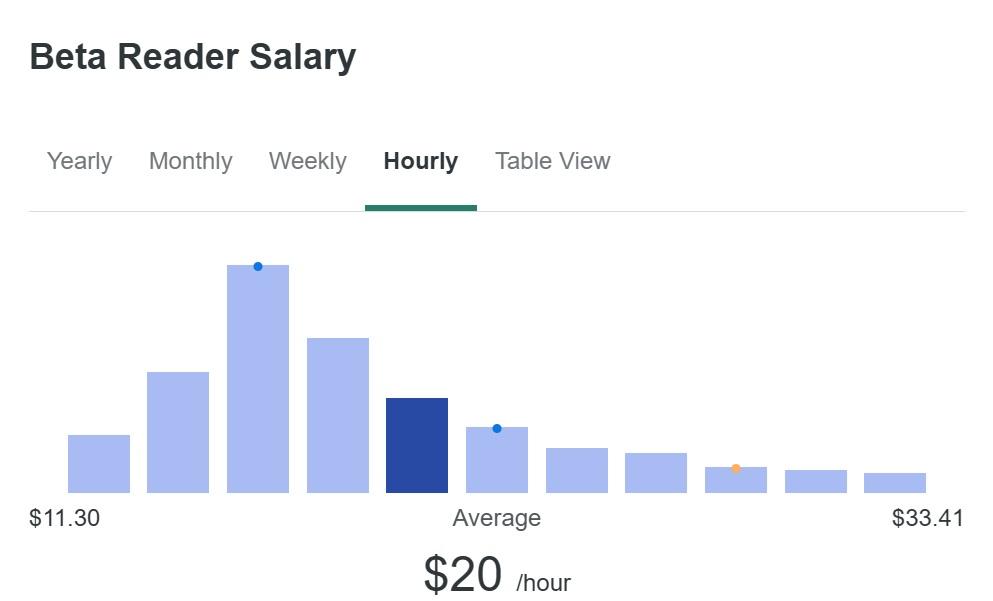
ipRecruiter
Freelance experts on Fiverr offer various prices to meet different needs. Some beta readers may charge just $5 for shorter pieces, while others might ask for $25 for manuscripts up to 20,000 words. If you want detailed feedback, like thorough reports or deep analysis, prices can go up to $50 or $100, depending on the level of detail and complexity. These different prices let authors choose services that fit their budget and needs.
Difference between alpha and beta reader
The key difference between alpha and beta readers is when they get involved and what kind of feedback they give. Both groups are vital, but they contribute differently during the writing process.
Here’s a quick comparison to help clarify their roles:
Why are beta readers valuable for writers?
As the creator, it’s easy to overlook your work's flaws. You tend to focus on your original vision or what you meant to convey—not what’s actually there on the page. If you’ve used AI writing prompts to help guide your story, you may find that certain sections need further refinement. By giving valuable feedback, beta readers can refine your work without bias. Whether addressing structural issues or offering clarity on your book blurb, their input helps you shape your manuscript into its best form.
Targeting the right audience
Beta readers help you understand how an audience might receive your book. Choosing readers familiar with your genre is critical as they can identify overused tropes or suggest missing elements that can improve your story.
For self-published authors or even those working with a ghostwriter, beta readers might be the first set of external eyes on your book. Their opinions can directly impact how readers perceive your work and, ultimately, its success.
Delivering honest feedback
Beta readers provide no-nonsense feedback that helps you see your work through the eyes of your target audience. Their ability to pinpoint strengths and weaknesses offers an early indication of how well your story resonates. Their insights go beyond surface-level comments, too. They’ll assess character development and pinpoint plot inconsistencies or pacing issues. This detailed assessment helps you refine your manuscript.
Identifying hidden errors
After spending countless hours crafting your draft, it’s easy to miss logical gaps or unresolved details. A beta reader approaches your work with fresh eyes, quickly spotting plot holes or confusing sections. They identify areas where your message may not be as clear as intended.
The feedback from beta readers is essential for maintaining consistency and coherence throughout your work. One survey reveals that authors prioritize feedback on whether their work makes sense, with over 80% rating it as "very important." Big-picture feedback and being alerted to wrong information are equally important.
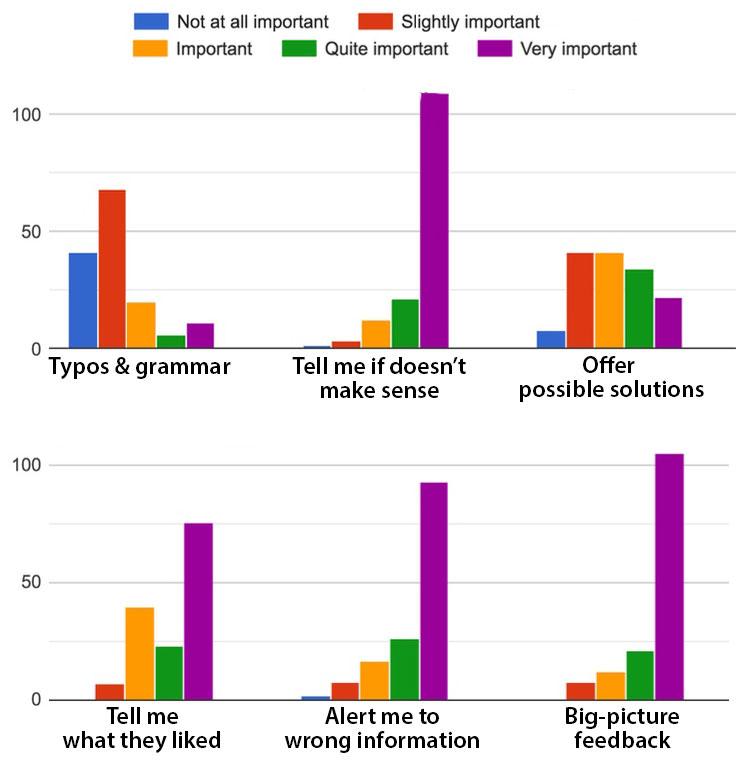
Small Blue Dog Publishing
Improving marketability
Some beta readers have expertise in publishing or marketing, providing insights into your book's market potential. They may focus on how your manuscript fits current trends, highlighting themes or character relationships that can help it shine. They may also propose distinct selling points that attract publishers, agents, or readers.
Where to find beta readers?
When looking for beta readers, the two most common questions are, “Where can I find them?” and “How many do I need?” Comments from this Subreddit discussion suggest that three to four beta readers are sufficient for a balanced range of feedback. However, the correct number depends on when you feel confident your manuscript is ready for editing. Aim for enough perspectives to refine your creative writing effectively.
So, where can you find these beta readers?
Online writing communities
Online communities like Goodreads and Facebook groups are great places to connect with fellow writers. Many are also searching for beta readers, making it easy to swap manuscripts and share feedback. Engage with authors familiar with your genre for the most useful critiques.
Local writing groups
Search for nearby writer meetups using Google or social media. Local groups can provide valuable notes and accountability since face-to-face interactions often encourage timely feedback.
Your author mailing list
If you have an email list, invite subscribers to become beta readers. You can offer perks like a free final copy or a mention in your acknowledgments.
Your network
Reach out to friends or colleagues who might enjoy beta reading or reading in general. Tap a diverse crowd—ask your friend who loves fanfiction or your cousin who devours thrillers. Be respectful of their time and open to their honest critiques.
Now, if volunteers are hard to find or you want professional work, another option is to hire a beta reader. Fiverr can be a big help as we offer a variety of features and benefits:
Find an Expert Beta Reader for Hire
How to become a beta reader
To offer meaningful feedback and support to authors, beta readers need to focus on these key factors:
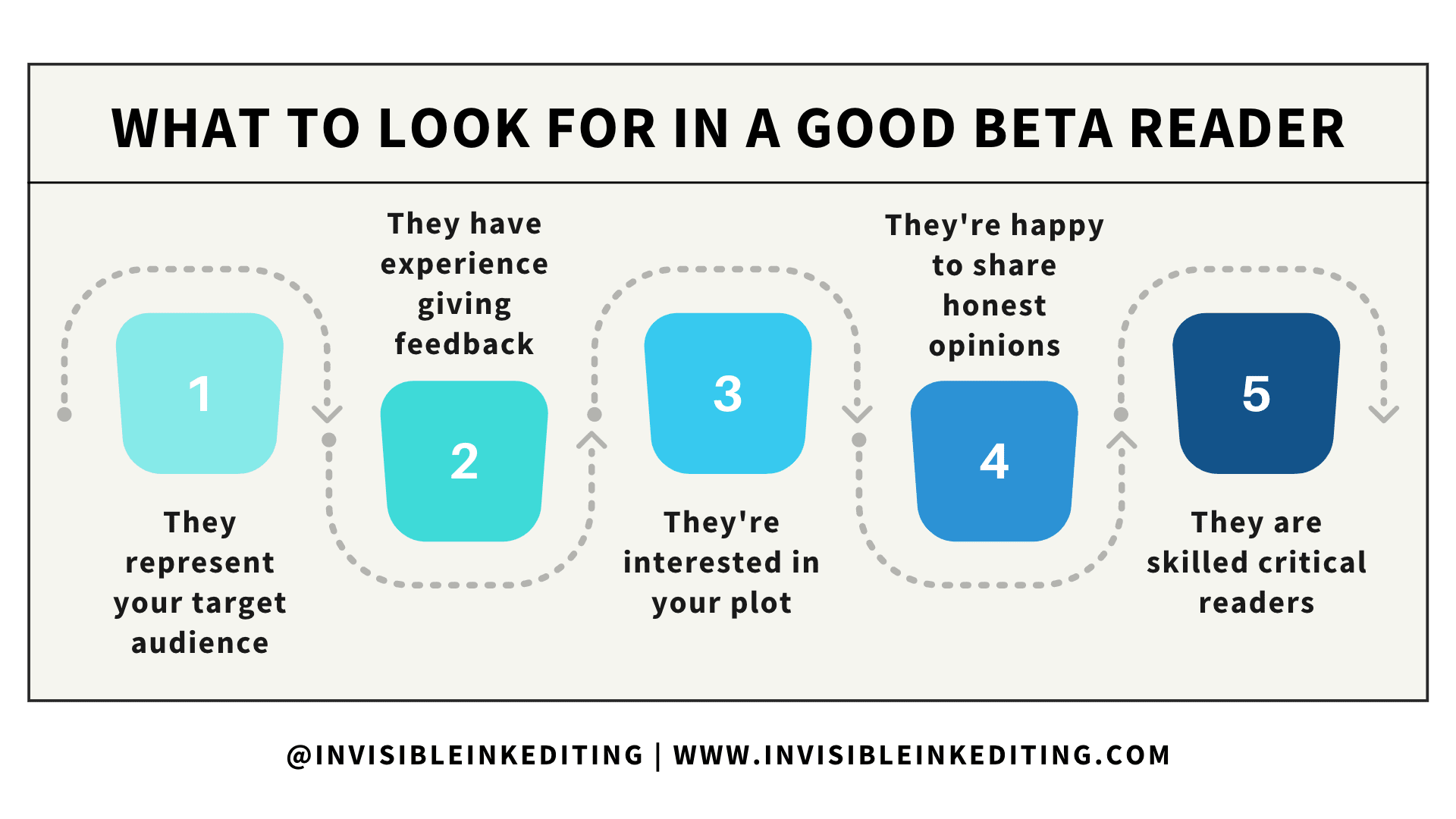
Invisible Ink Editing
Mastering the art of providing feedback
A beta reader provides constructive feedback on a manuscript before it undergoes book editing or publishing. Unlike professional editors, beta readers serve as critique partners. They focus on how a book resonates with an audience, highlighting strengths, areas of confusion, or potential issues. Their collaborative role offers honest and actionable insights that help authors improve their stories. They give feedback that’s specific, respectful, and constructive.
Specializing in a genre
Authors look for beta readers who understand their genre because this leads to more relevant and practical feedback. A well-versed reader can assess how effectively the story fits within its intended framework while still offering a new point of view. Their expertise in a particular type of writing can also help them identify innovative approaches or gaps in storytelling. By focusing on genres they genuinely enjoy, they’ll bring enthusiasm and sharper insights into the feedback process.
Building connections with authors
Building a beta reader profile can be daunting for those struggling to find authors to work with. The good thing is there are many ways to connect with authors looking for help. Beta readers can join online writing groups, forums, or social networks catering to authors and beta readers. Going to local book fairs and literary festivals is another way to expand their network. They can even reach out to their favorite authors and politely ask for a beta reading opportunity.
Expanding knowledge of creative writing
One doesn’t need formal qualifications to be a beta reader, but knowing storytelling basics and having good English skills can certainly help. It’s essential for beta readers to spend time learning what makes a story engaging, like character development, pacing, and plot structure. Checking out online resources, joining writing workshops, or reading editing books can help improve skills. A beta reader who thoroughly grasps the creative process can better provide valuable suggestions.
Buy and sell beta reading services on Fiverr
Beta readers are essential to transforming manuscripts into captivating, polished stories. Whether you're refining a self-published book or offering insights to aspiring authors, Fiverr is your one-stop hub. Buyers can discover expert beta readers for any genre, from thrillers to children's books, while sellers can share their skills and attract a broad audience.
With features like secure payments, ratings, and messaging tools, Fiverr ensures a smooth experience. It helps you elevate your writing and monetize your talent. Explore Fiverr now—where you can explore or showcase writing-related services—from feedback to ebook writing services—and beyond.
Beta reader FAQs
1. How much do beta readers get paid?
The average beta reader in the US earns about $20 per hour. That said, several factors can affect the rate. These include the beta reader’s experience, the complexity of the project, and how long it takes to give feedback.
2. What is the difference between alpha readers and beta readers?
Alpha readers provide feedback on early, rough drafts. They mainly focus on broad ideas and structure. On the other hand, beta readers give feedback on the finished and more polished version of the draft. They focus on storytelling, characters, and overall flow.
3. Can anyone be a beta reader?
Technically, anyone can be a beta reader. However, to be an effective one who’ll be sought-after by authors, you need to have:
Good reading comprehension
Attention to detail
Interest in the genre
Strong analytical and communication skills
4. What is the difference between a proofreader and a beta reader?
Those who provide proofreading services focus on the finer details, such as:
Grammar
Sentence structure
Spelling
Formatting.
In contrast, beta readers focus on the story, evaluating its:
Pacing
Characters
Plot
Overall framework
